Thesis Background
In the current unequal social-economical system, unfair treatment is often found directed against individuals or social groups. Discrimination is an issue that everyone could have experienced. Whenever we meet new friends, we evaluate and classify them into different social stratum or groups accordingly to their appearances as well as our preferences. Jennifer Lawrence once wrote an article about gender inequality, and Winnie Harlow are fight against discrimination on ethnicities. Apart from these seemly harmless cases, the issue of discrimination might be serious and claim people’s lives. Examples of this are Rohingya Crisis, and the shooting death of Black men. The unfair treatment made with prejudice is breaking the modern society and make big the irreparable gap among different groups.
So, what architects can do with this social phenomenon? How are we able to change the thoughts as well as behaviours of humans with architectural space?
Toward a discrimination-free society
The aim of the project is to change the way people react and behave. To exert maximum influence over people, the project should be located at city with the highest diversity and density in the world – New York City. Besides, if integrate the project with the existing infrastructure and the daily life of people, there will be a tendency of increasing visitor numbers.
Based on some researches, I created three journeys that will be applied in my architectural project. The first journey aims to change human behaviours by making them aware of the discrimination behaviour, pay more attention to the surrounding lives, and to discover multiple perspectives perceiving the external world.
“people react to enormously varied environments in terms of a few basic emotional dimensions, and that these basic emotional dimensions can in turn produce enormously varied kinds of behaviour. This proposition can be thought of as a kind of input-output system. The input or environment end contains literally anything that can be perceived. The output or behavioral-response end includes anything within the human repertory…”
Mehrabian, A. (1976)
The second journey aims to change human thoughts – to think wider and react with higher acceptance. People are to broaden their minds and expand the way we think. Past is to be changed to influence the future. We retrieve and reassess the past memories to expand future perception.
After the self-reflection zone, comes to the end of the journey – that is to make use of what you have learnt in the previous journeys and try to influence more people. As a result, the aim is to create connection and interaction between the two groups of people.
Conclusion
The design of the three journey hopefully will gradually change human’s behaviours and thoughts and further make influence on others. By locating the project in one of the busiest city in the world, the project aims to influence as many people as possible.
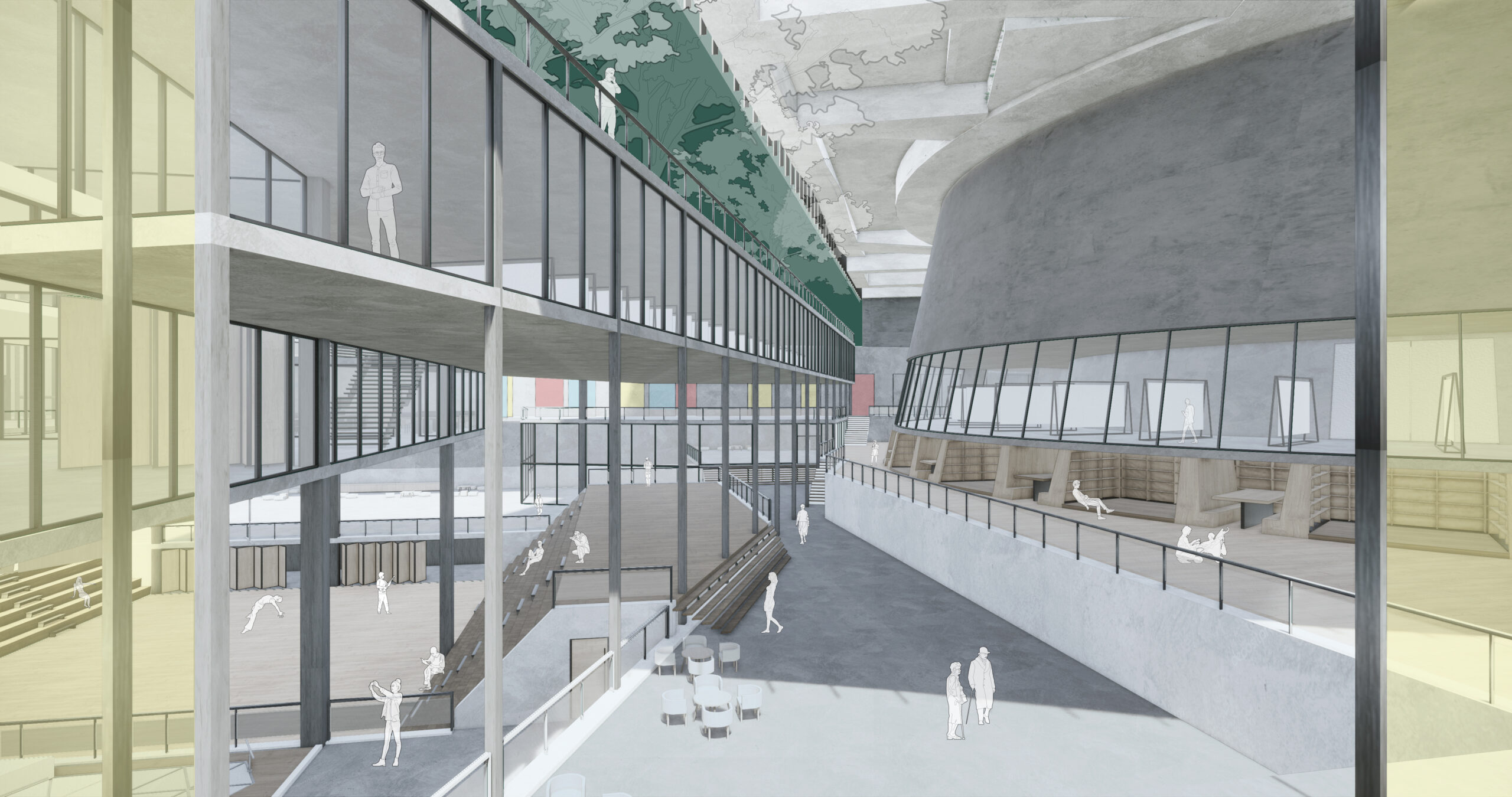
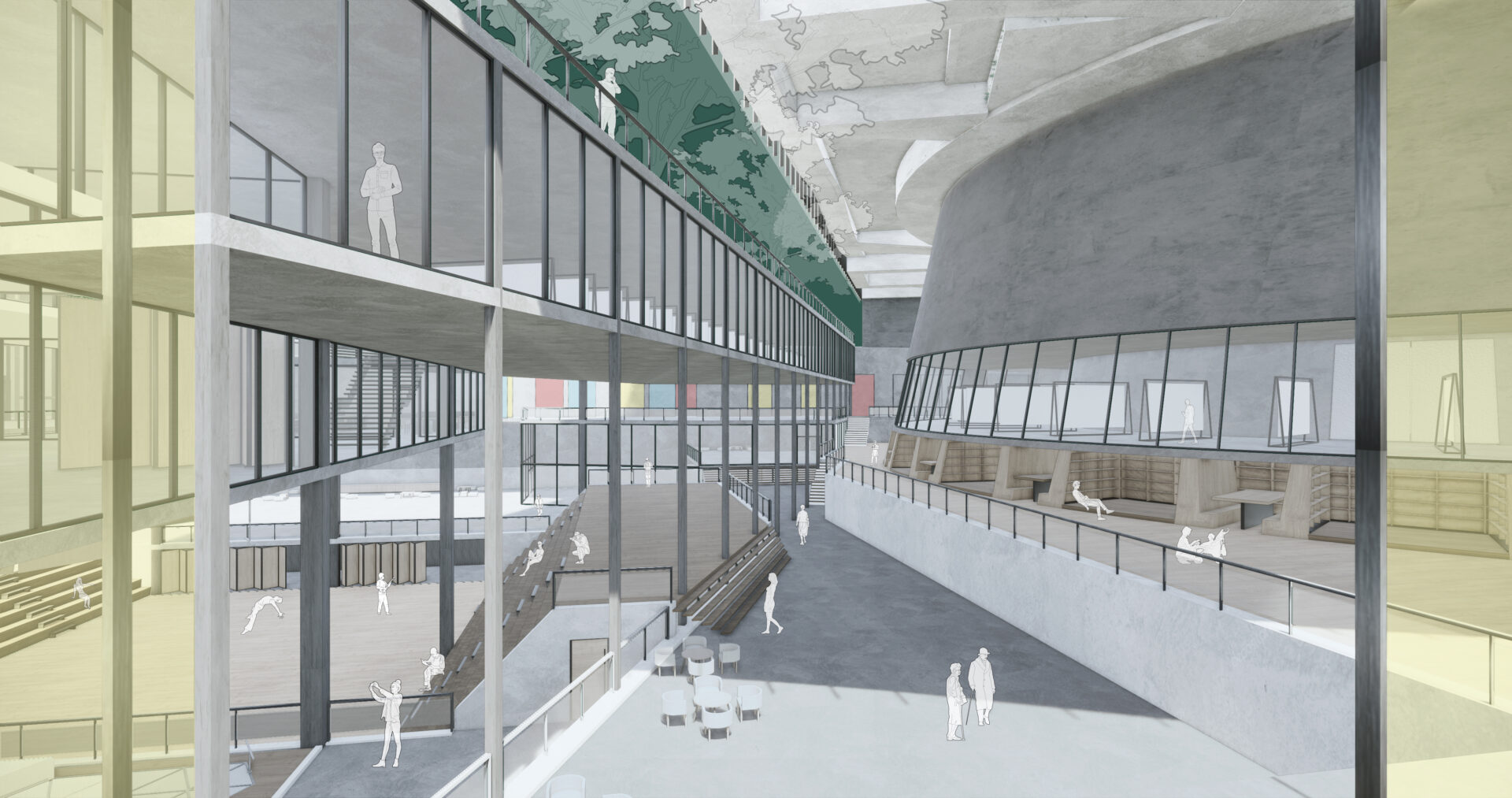



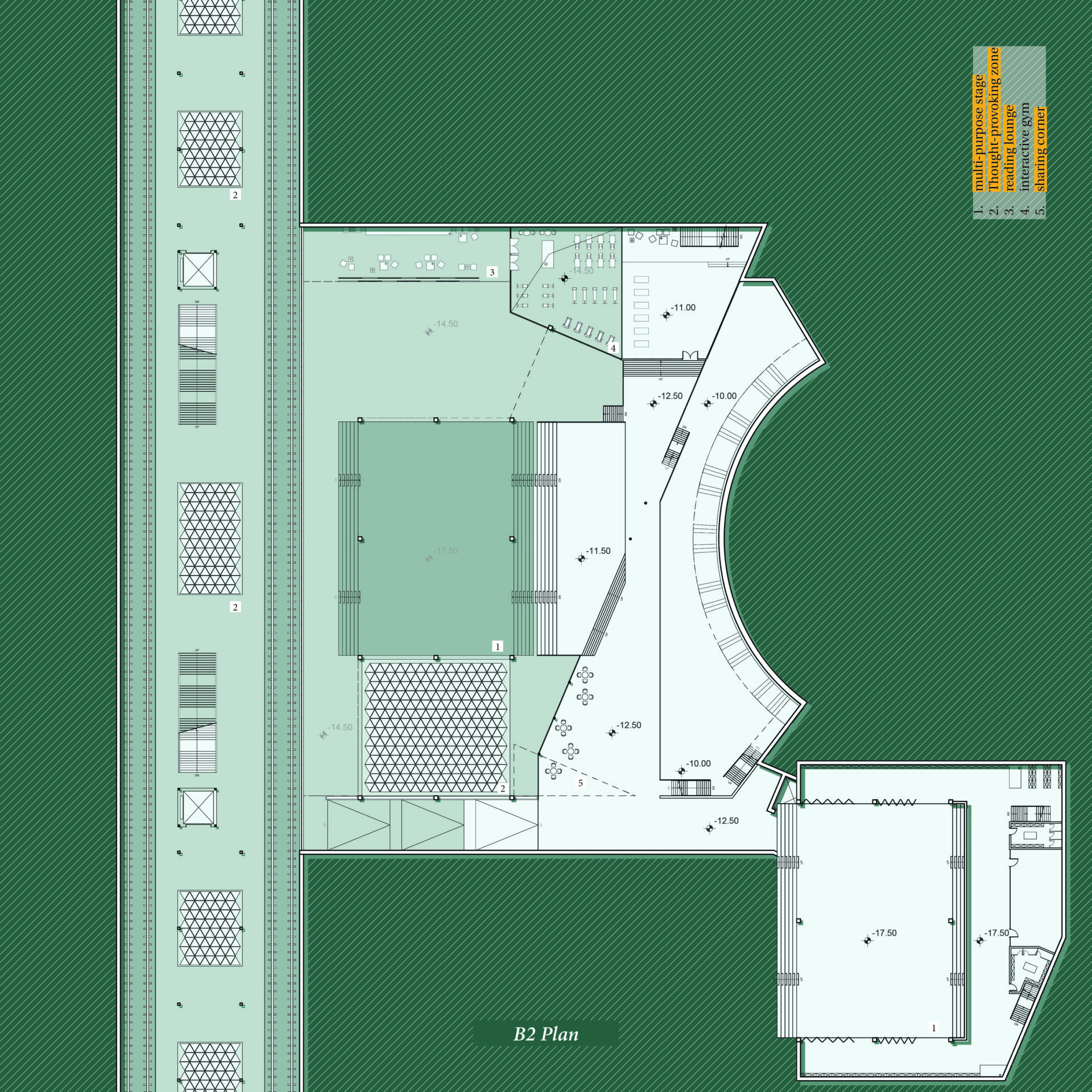
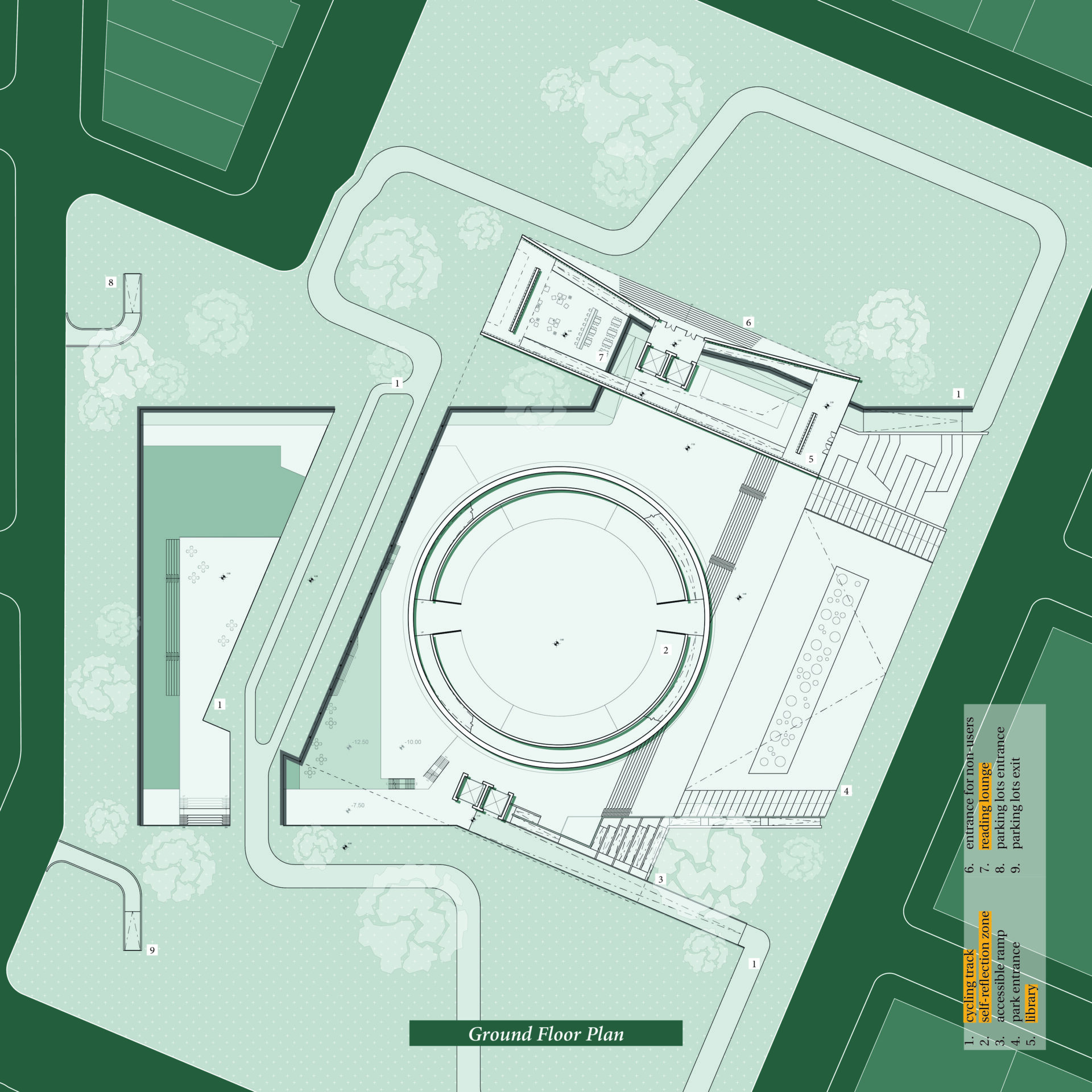
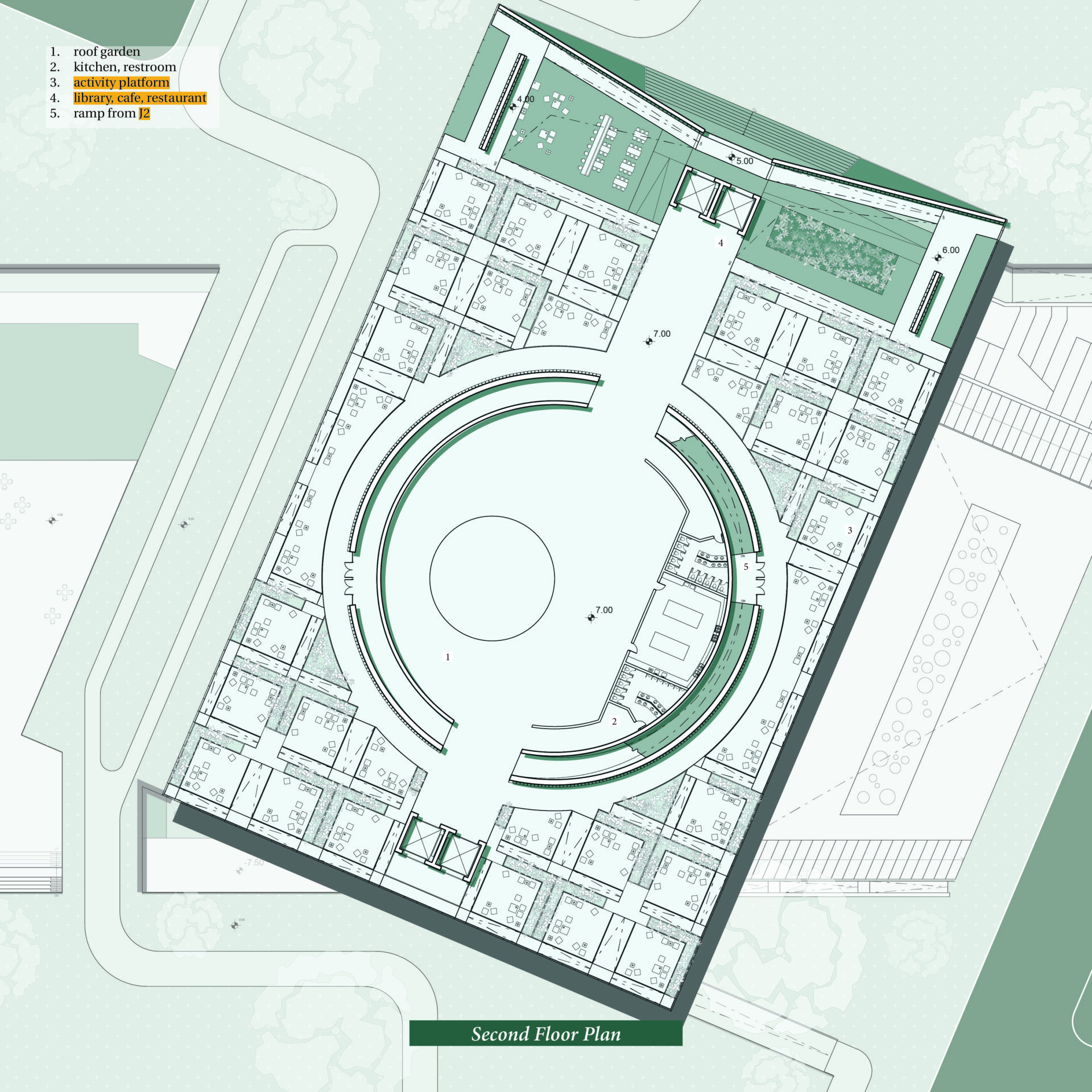
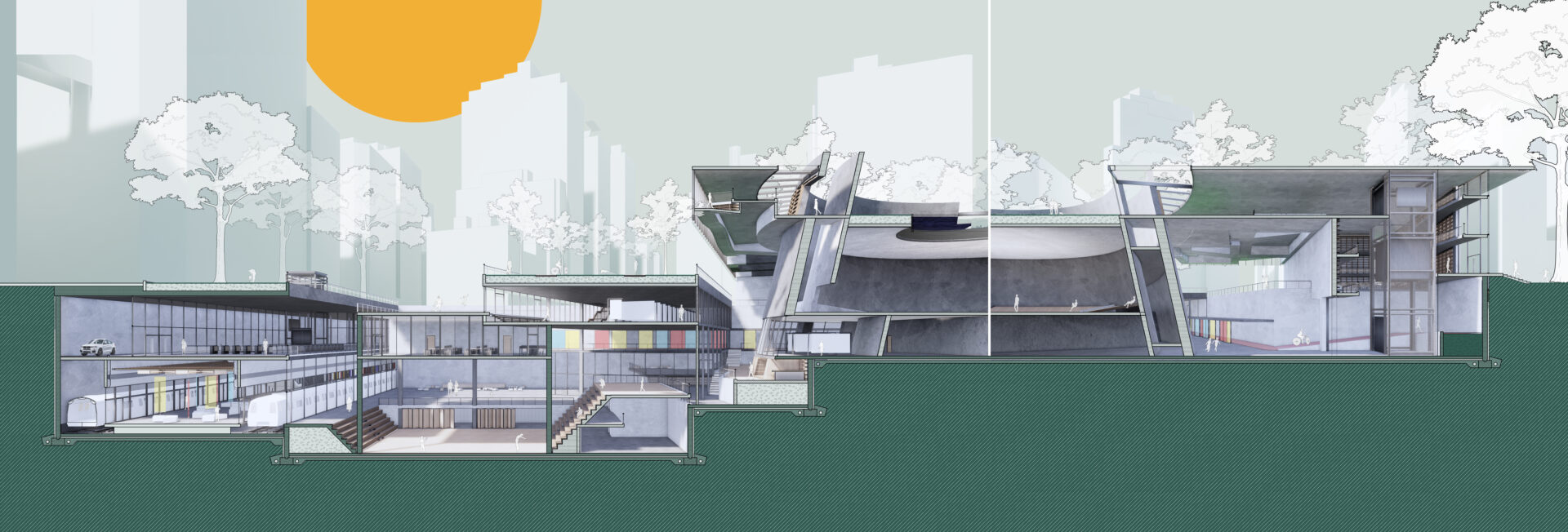
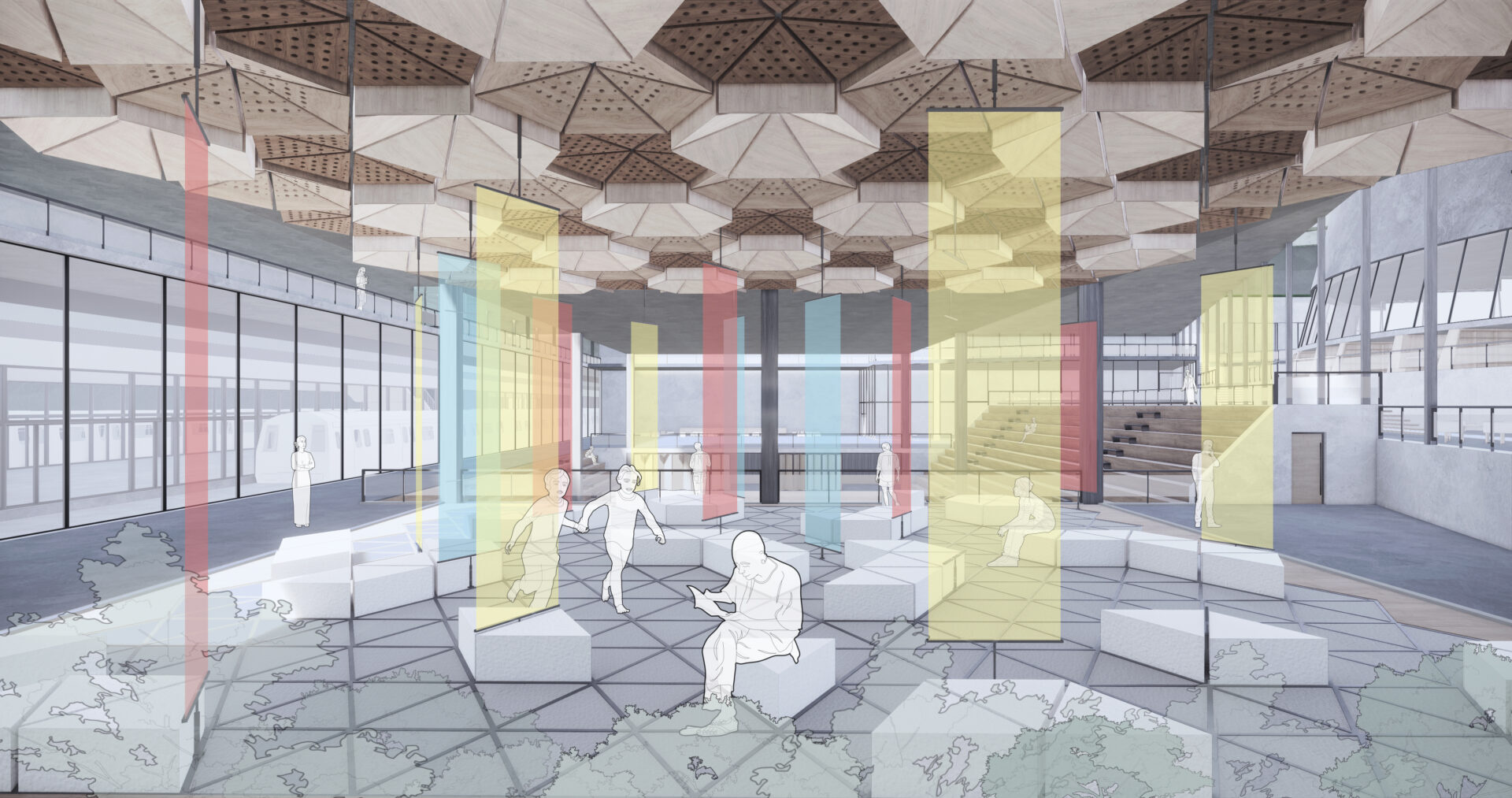
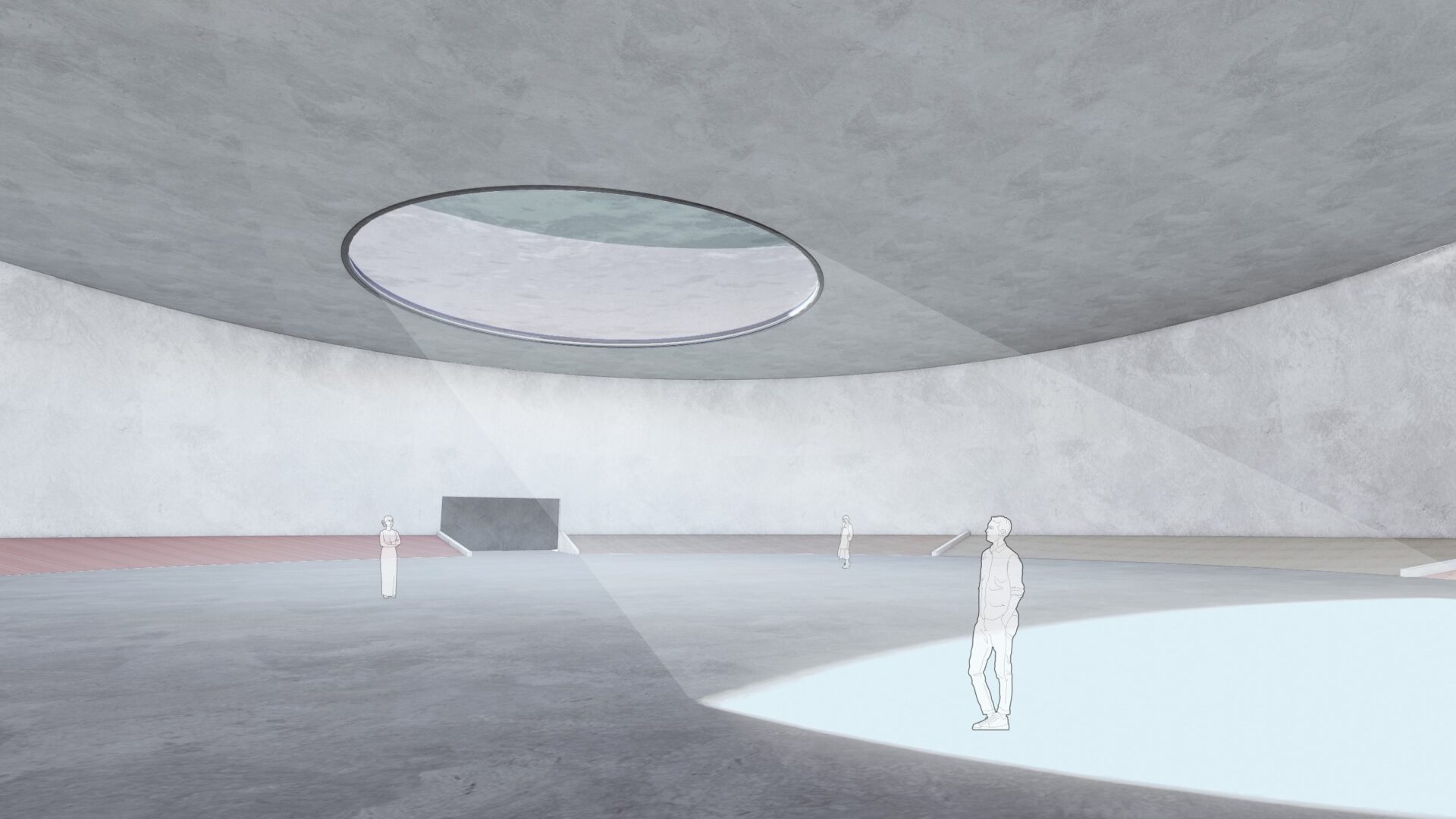
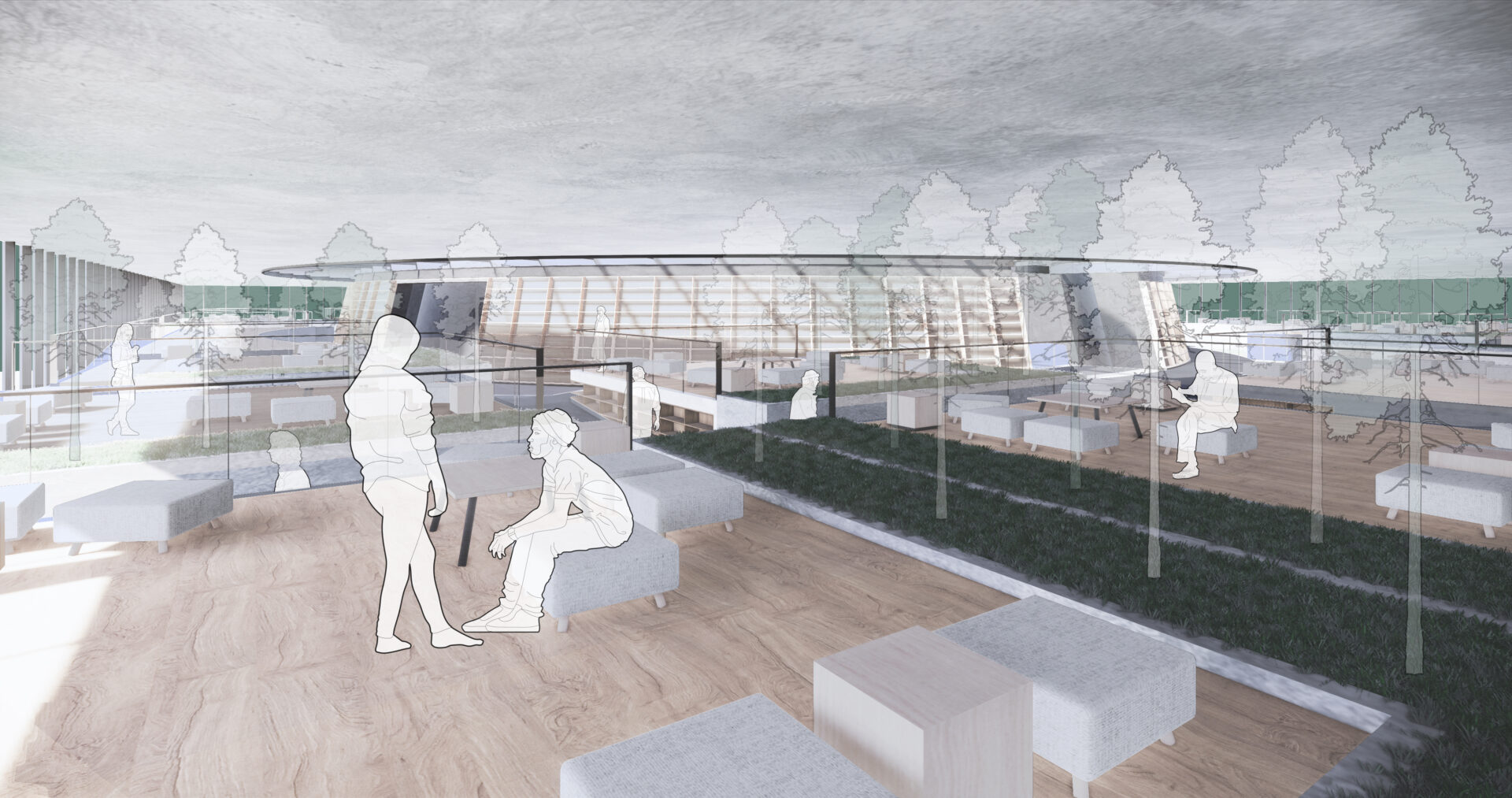
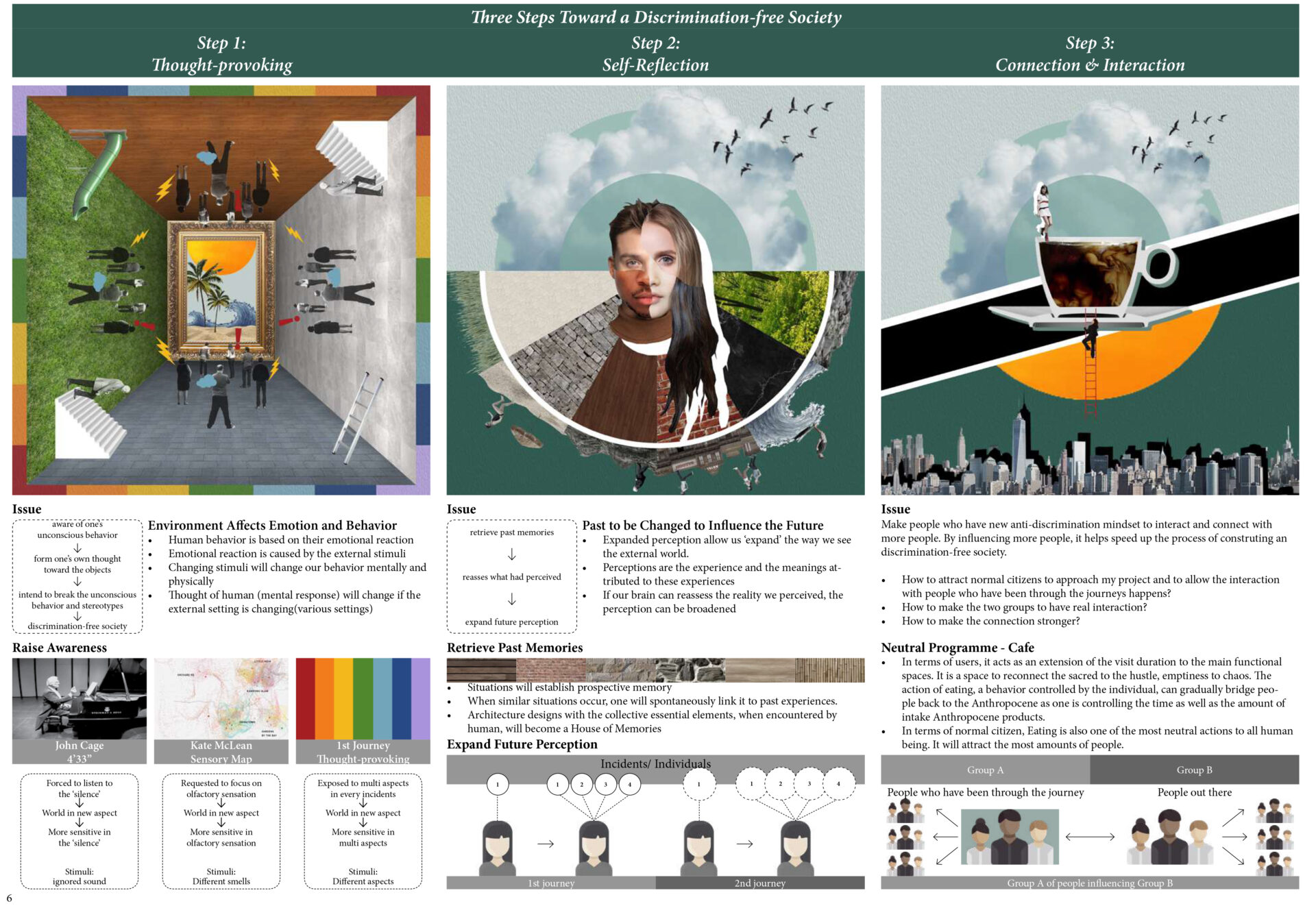
Supervisor's comments:
Wu Yi Jane’s thesis addresses one of the most architecturally challenging abstract issues: discrimination. The topic may be easily fell under subjective discourses, for which she overcame the pitfall by theorising 3 phases strategies to neutralise people’s perceptions: i. changing perceptions, ii. self-reflections, iii. re-engaging with the society. Eventually, the sequential spatial compositions evoke us an archetype of museum, which may imply further prospects of her thesis visions. Wu Yi Jane is intelligent and exceptionally hardworking, persistently responsible and reliable. She may work under challenging business environment, yet to deliver outstanding results at her best. I wish all the best for her professional carrier.
- Assoc. Prof. Shinya Okuda